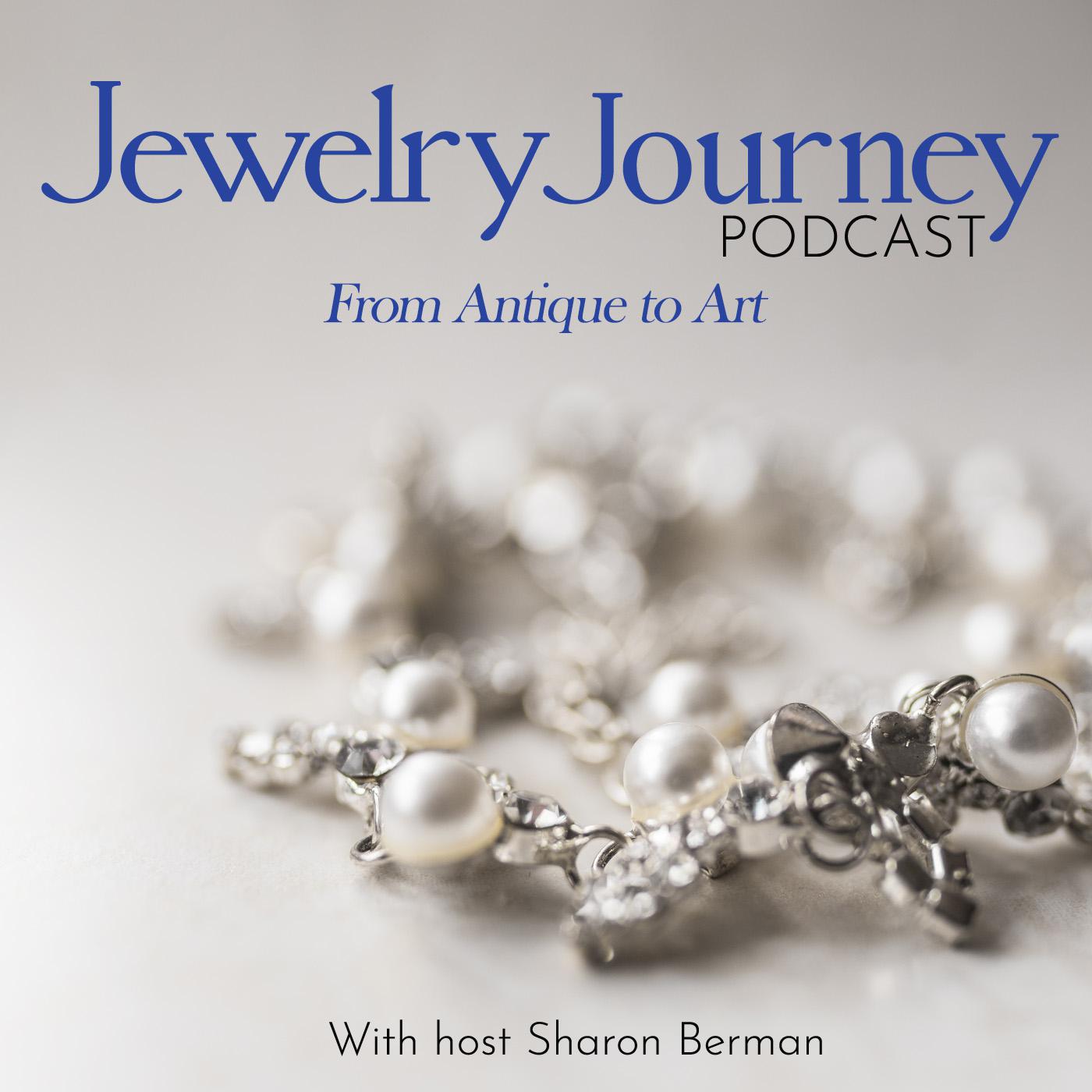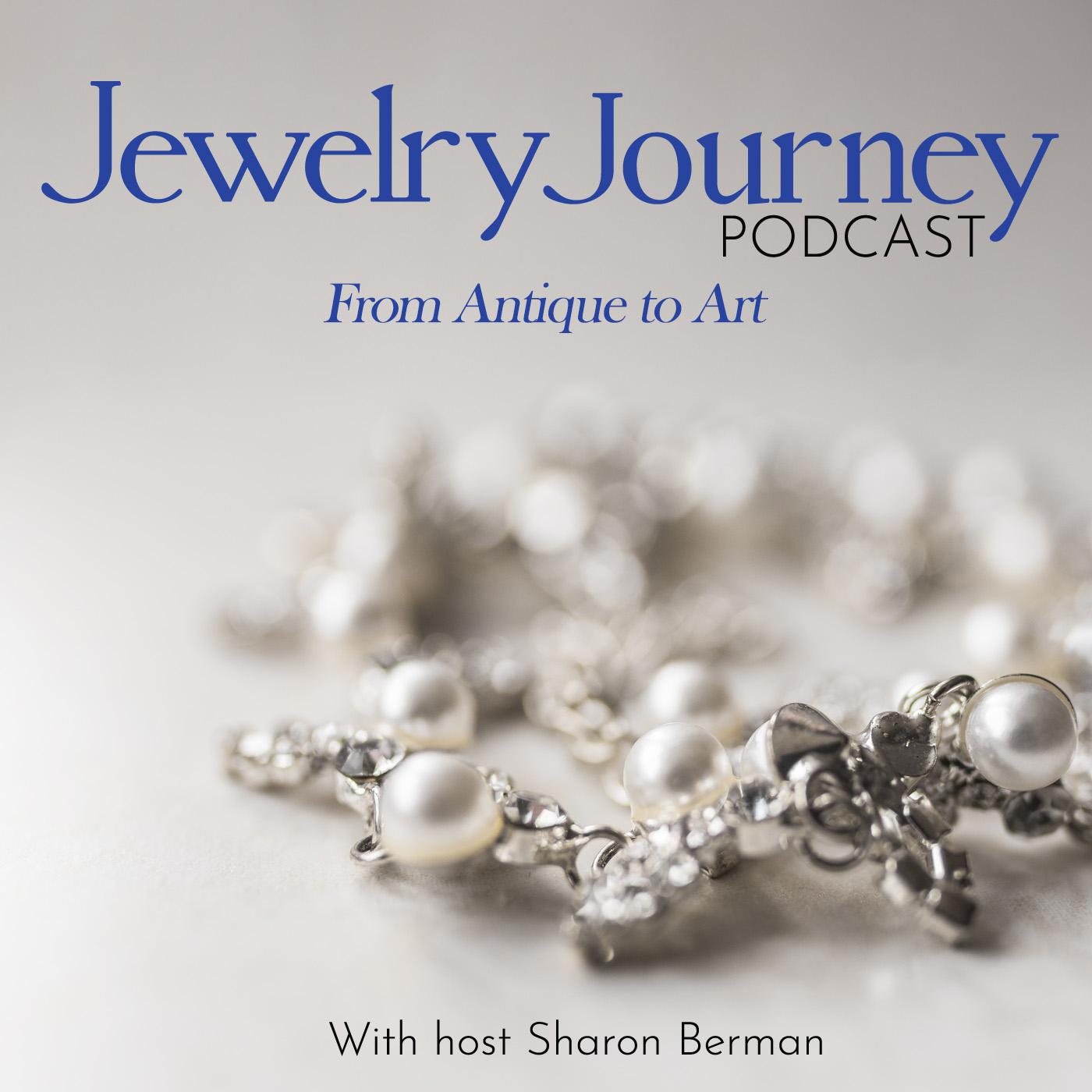Episode 218 Part 2: Gina D'Onofrio's Tips for Choosing a Qualified Independent Appraiser
Description
\
Transcript:
Auctions, appraisals, and the professionals who perform them are some of the most misunderstood elements of the jewelry industry. That's exactly why Gina D'Onofrio, independent appraiser and Co-Director of Fine Jewelry at Heritage Auctions, joined the Jewelry Journey Podcast. She discussed what a consigner can expect when selling jewelry with an auction house; how appraisers come up with values (and why they might change); and how consumers can protect themselves by asking their appraiser the right questions. Read the episode transcript here.
What you'll learn in this episode:
- What questions to ask appraisers and auction houses before selling your jewelry.
- What education and networking opportunities an aspiring appraiser should seek out.
- Why an appraisal includes multiple values, and why those values will change depending on the reason for the appraisal.
- What the process of selling jewelry with an auction house is like, and why you might choose an auction house over selling online or to a store.
- What a qualified appraiser will look for while inspecting a piece of jewelry.
About Gina D'Onofrio
With work in the retail, auction and manufacturing sectors of the jewelry industry since 1989, Gina D'Onofrio's experience encompasses jewelry design and production, appraisals, buying and selling of contemporary, antique and period jewelry, sales and management.
Gina operates an independent gemological laboratory, appraisal service and consulting firm and has been catering to private individuals, banks, trusts, non-profit organizations, insurance companies, legal firms and the jewelry trade in the greater Los Angeles area.
Gina received her Master Gemologist Appraiser® designation, upon completion of appraisal studies, written and practical examinations and peer appraisal report review with the American Society of Appraisers. In addition, she was awarded the Certified Master Appraiser designation with the National Association of Jewelry Appraisers.
In 2013 Gina received Los Angeles Magazine's coveted "Best in LA" award for her Jewelry Appraisal Services.
She conducts presentations and entertaining speeches about appraisal and jewelry related topics to private and corporate groups in Los Angeles and throughout the USA.
Photos Available on TheJewelryJourney.com
Additional Resources:
Transcript:
Auctions, appraisals, and the professionals who perform them are some of the most misunderstood elements of the jewelry industry. That's exactly why Gina D'Onofrio, independent appraiser and Co-Director of Fine Jewelry at Heritage Auctions, joined the Jewelry Journey Podcast. She discussed what a consigner can expect when selling jewelry with an auction house; how appraisers come up with values (and why they might change); and how consumers can protect themselves by asking their appraiser the right questions. Read the episode transcript here.
Welcome to the Jewelry Journey, exploring the hidden world of art around you. Because every piece of art has a story, and jewelry is no exception.
Sharon: Hello, everyone. Welcome to the Jewelry Journey Podcast. This is the second part of a two-part episode. If you haven't heard part one, please head to TheJewelryJourney.com.
Today, I am glad to welcome back Gina D'Onofrio, an appraiser who just returned from being an independent appraiser. She returned to the auction house Heritage as co-director of jewelry. She was also on the podcast in the very beginning, and it's good to have her on again. Welcome back.
If you become a certain kind of appraiser, let's say real estate or antique jewelry or I'll call it regular jewelry, how do you continue your education in those areas? What do you do if you're a real estate appraiser and you want to be an expert, or an antique expert? What would you do to continue education in that area?
Gina: You mentioned real estate. So, you mean you're appraising houses and all of a sudden you want to appraise antique jewelry?
Sharon: No, if you're in a particular area, is what I mean. You work in jewelry. What do you do to further your education besides going to the conferences, handling the jewelry? Are there other things you can do to further your education in those areas? In that area, I should say.
Gina: If you're working in jewelry, you're basically filling all the educational holes that you might have. When you say you work in jewelry, if you work for a contemporary jeweler, then you need to have more exposure to vintage jewelry. If it's vice versa, maybe you're working with antique and estate jewelry and you're not as exposed to what present day Tiffany and Company and Cartier and Van Cleef & Arpels are doing, then you have to self-educate and gain more exposure to that kind of jewelry.
As a jewelry appraiser, anything can cross your desk. Quite often, I might receive a collection that belongs to somebody, and she may have something that she bought last week and she may have something that her great-grandmother owned and she has inherited. You need to be able to recognize and evaluate and appraise both pieces. So, you do need a very well-rounded education.
Sharon: You raised the point of Cartier and David Webb and the high-end pieces that designers make, but not everything you see is going to be that. As you said, there's the piece that the grandmother passes down. Heritage, I presume, isn't all Cartier. What do you do then? What do you do if a piece comes across your desk and it's not a Cartier or it's not a David Webb? Do you look at a David Webb as the benchmark and then go from there?
Gina: No, you don't, because a piece that has no stamp or signature doesn't necessarily mean that it's not a fine piece. That's where having an understanding of jewelry manufacturing is critical. You do need to gain an education on how a piece of jewelry is made. GIA is teaching a class called jewelry forensics. In that class, they teach appraisers and other members of the industry how to look at a piece and recognize how it was fabricated. Was it made entirely by hand? Was it made by carving a wax and casting it? Was it made via CAD/CAM design and 3D printing? Was made by using a die struck method? These are all different methods of producing a piece of jewelry, and as an appraiser you need to have an education in that so when you're holding that piece of jewelry in your hand, A) you recognize how it was made, and B) you recognize the quality of the workmanship. That plays into the value of the piece.
For example, you might have a piece of jewelry, and you recognize that it was made entirely by hand. A great deal of time and effort has gone into making it, and the workmanship is excellent. Flawless, in fact. That is going to inform you as to what it would cost to replace that piece if your client wants to insure it for another piece that has been made entirely by hand.
Or, you might look at a piece that is mass produced using CAD/CAM and 3D printing, but it's a piece that's not finished very well. It's poorly made, and the setting work is very poor, too. In fact, some of the stones are a little bit loose because they weren't set properly, or perhaps they're not straight in the piece. That's going to tell you that it's a mass-produced piece. If it's not signed, you're going to be looking at other mass-produced pieces of the same type of lower quality in order to determine what it would cost to replace that piece. Understanding production is really important.
Sharon: Can you be an appraiser without having this background of manufacturing and that sort of thing? Could you be an appraiser?
Gina: You can. I'm really sad to say that there is no licensing of jewelry appraisers. There is no regulation, no government regulation. We self-regulate. That's why if you want to become a professional appraiser and you want to be the best appraiser you can be, you should join an organization that gives you excellent education and network with other very experienced appraisers who can help guide you in the right direction to get the education that you need.
Unfo
























